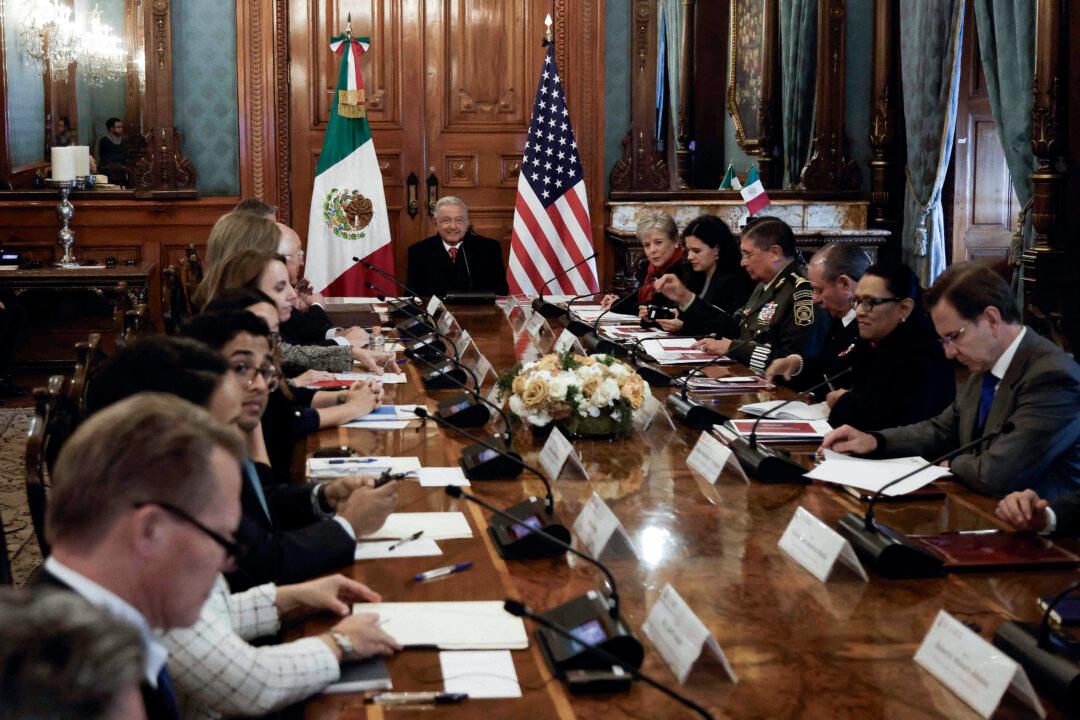U.S. officials met with the president of Mexico on Dec. 27 to talk about the unprecedented flow of illegal immigrants on the U.S.–Mexican border.
Secretary of State Antony Blinken and Secretary of Homeland Security Alejandro Mayorkas convened with President Andrés Manuel López Obrador in Mexico to “discuss unprecedented irregular migration in the Western Hemisphere and identify ways Mexico and the United States will address border security challenges,” according to the State Department announcement.





